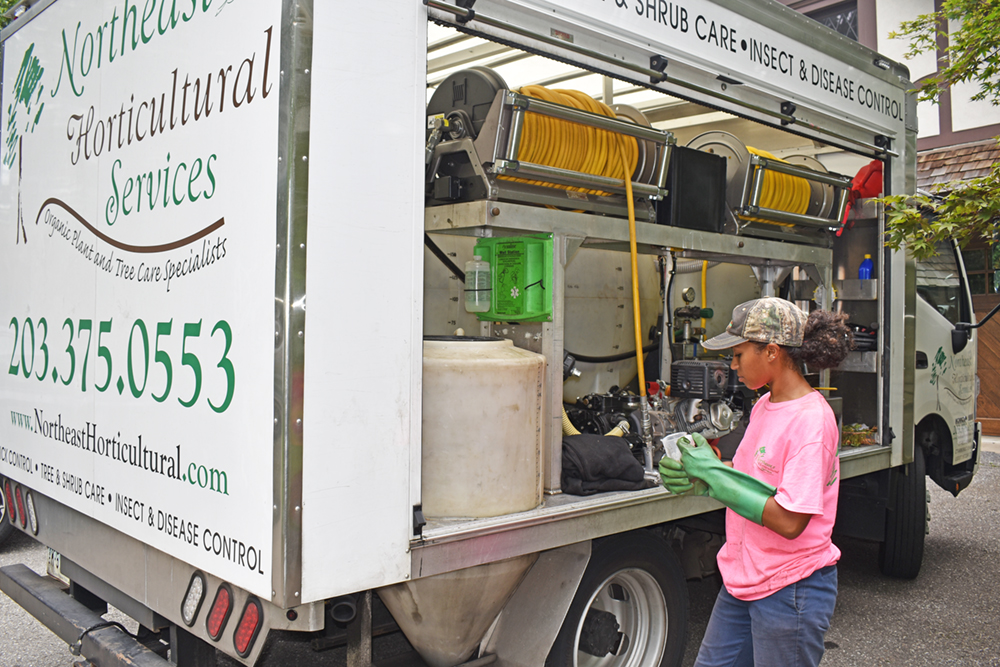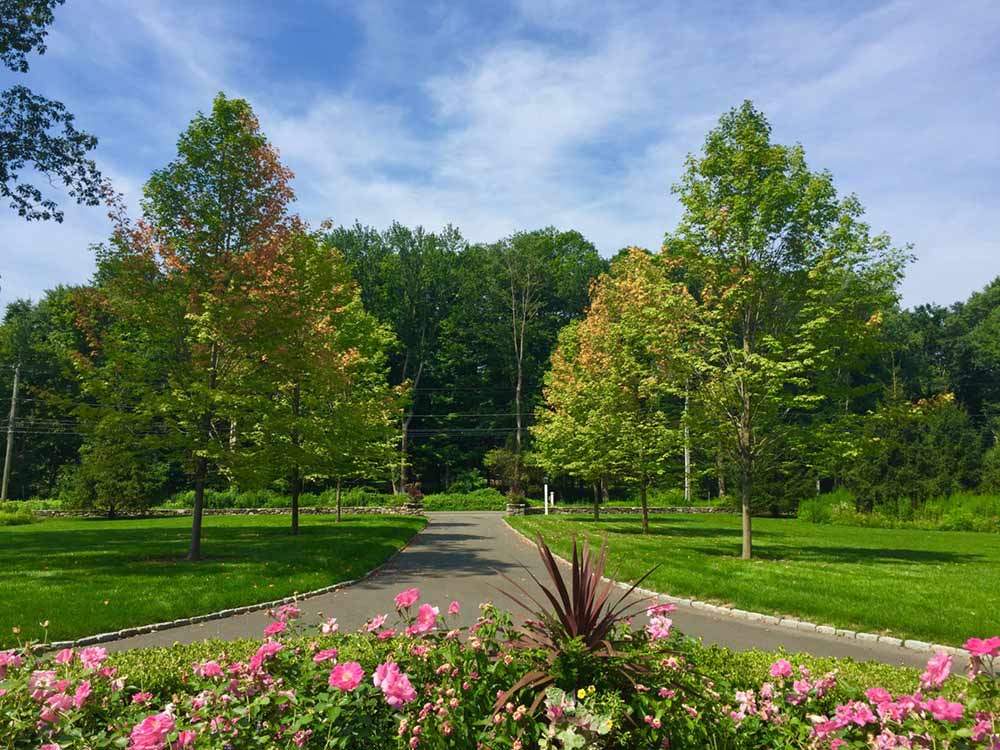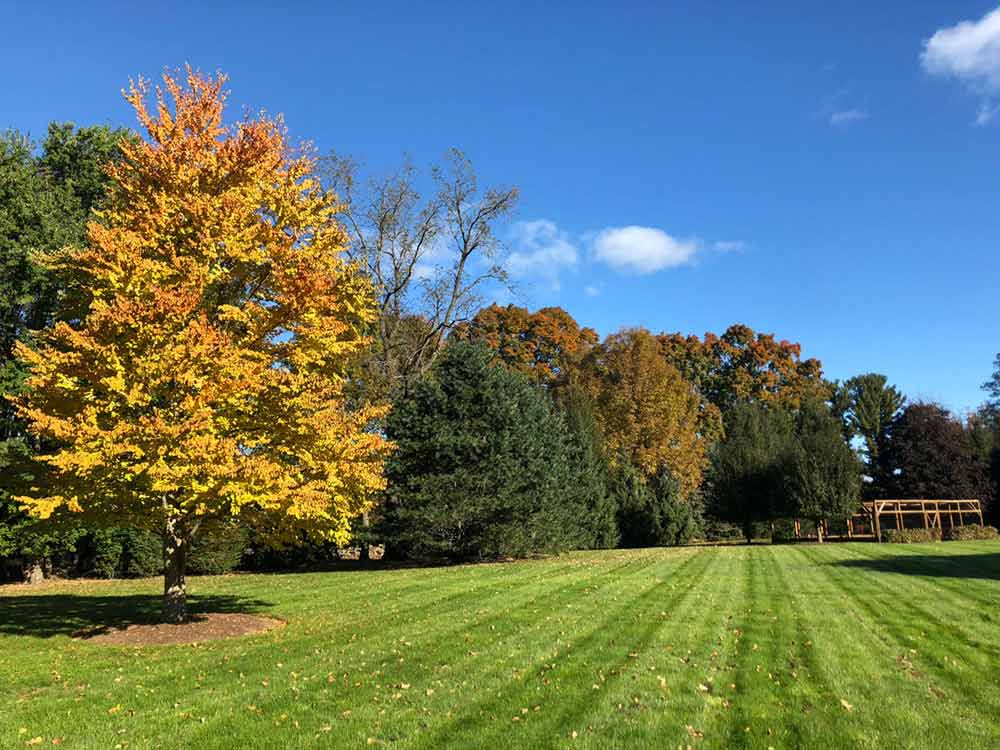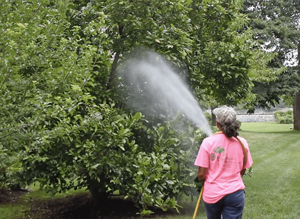Manage the Ticks… Organically!
Northeast Horticultural Services has many proven methods for tick management, but the most common method is treating your property.
We offer three different approaches to tick management: organic, natural and synthetic. All three types of control are applied in the same way. First, we treat the brushy and leafy areas where ticks thrive. Next, we focus treatments on the perimeter of the property with a generous amount of product to create a continuous barrier. Then we lightly dust the turf areas. Ticks typically do not live in turf areas.
How it Works
Our arborists will evaluate your property, assess the level of tick activity present, and determine your needs. Then, we create client-specific tick control protocols based on the information gathered.
We advocate for the use of organic products when possible. However, we also understand when the use of synthetic treatments may be necessary. If we must use non-organic options, we time the applications based on the life cycle of the tick for maximum effectiveness.
Organic Management
There are several cultural management solutions for tick activity. While deer fencing works best, we also recommend cedar woodchips as the scent repels deer. We also use an organic product that is composed of cedar oils and a derivative of raspberries. These are safe to humans, but toxic to ticks. We apply these with a product to improve the treatments residual qualities, but we will need to re-apply throughout the year for effective management.
Natural Treatments
The natural treatments are chrysanthemum plant based products and are less toxic to the environment. These have no residual effect and need to be applied more than three times per season. We recommend 5 to 7 applications per season, depending on the weather.
Synthetic Treatments
Synthetic treatments require the use of pesticides. For those that have decided that synthetic treatments are ok to be used in their yard, we recommend only three applications a year. We apply these with a surfactant that allows the chemical to stick. They have a residual effect and can remain active for up to three months. For maximum effectiveness, we time the applications based on the life cycle of the tick. First, we apply in April when the immature ticks are turning into adults. The second application is in mid-summer to knock down any ticks that have been brought into the property by rodents and deer. Finally, the last application is made in October when the adult females are looking to breed. After two years, we have found that by timing these applications correctly, the tick problem is virtually eliminated.
We also offer complete Plant Health Care, Tree Care, and Landscape Services.
Visit our Facebook page for reviews, photos and more information on our current projects in organic land care.



Our Organic Land Care Services
Contact Us
Please fill out the form below if you are interested in requesting a free consultation for organic land care services.





